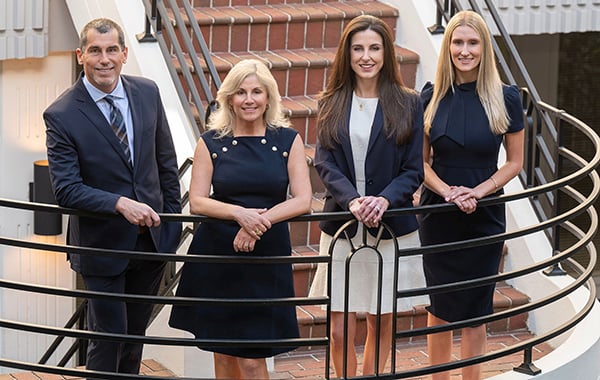What You Need To Know As A First-Time Homebuyer
Assisting first-time homebuyers will always be an important part of my practice because I am forever grateful to the professionals who assisted me with the purchase of my first home. Those professionals included my mortgage broker, realtor, home inspector and closing agent.
It was my mortgage broker who explained the mortgage approval process to me, including how the debt-to-income ratios determined the mortgage payment for which I qualified. He went over the various loan programs with me, and together we chose the right one for me, which, at that time, was FHA. He further explained the benefits of having the seller pay most of my closing costs, but that, in exchange, I might have to pay full price.
From there I was able to set my upper price limit and find a realtor to show me homes within my price range. I found someone who had the patience and knowledge to work with first-time homebuyers, and my journey began. Below, please find frequently asked questions and answers designed for first-time homebuyers.
Q. Are FHA mortgages the best option for first-time homebuyers?
A. There is no one best mortgage for first-time homebuyers. Generally, FHA guidelines allow smaller down payments, higher debt ratios and relaxed credit requirements. Your mortgage professional will be able to compare the costs and benefits of various mortgage options with you. It is important to have this conversation with your mortgage professional prior to making an offer on a home.
Q. For which inspections is the seller responsible?
A. In Florida, a seller is not required to perform any inspections or to make any repairs in preparation for a closing. However, a seller of residential property is required to disclose material defects that affect the value of the property but are not readily observable. Therefore, it is extremely important that a buyer perform certain inspections. The most common are home, termite and septic inspections. At times, it might be appropriate to conduct a mold or radon inspection. If a buyer has concerns about the life expectancy of a roof or HVAC system, a special inspector may be employed. The costs of these inspections are almost always the buyer’s responsibility.
Q. What repairs must the seller make prior to closing?
A. The terms of the purchase contract govern the repair requirements. Some contracts set a dollar limit for seller-required repairs while other contracts contain as-is language. It is important that your realtor or attorney negotiate the appropriate terms on your behalf.
Q. How long will my closing take? Should I take the day off from work?
A. Cash transactions that are attended by both buyer and seller take less than 30 minutes. If only one party attends, less time is needed. Mortgage transactions generally take a full hour to complete. However, sometimes lenders are late in delivering the loan packages to the closing agent, which causes a delay in the closing time. It is best to schedule a mortgage closing between the hours of 10 a.m. and 3 p.m. If your employer will allow, you should schedule yourself out of the office for a half-day.
Q. What is an escrow account, and do all lenders require an escrow account for property taxes and insurance?
A. An escrow account is a holding account that enables borrowers to pay their annual property taxes and insurance premiums in installments as part of their monthly mortgage payments. Interest is not earned on escrow accounts. Typically, a two-month cushion is added to the projected amounts to provide a buffer for unforeseen increases. Escrows are not required on all loans, but sometimes the borrower is charged a fee to waive the escrow. Each year, the escrow account is analyzed and brought back to a balance that provides for a two-month cushion based on the prior year’s actual payments. This could result in either additional funds due or a refund to the borrower.
Q. What can I do to prevent wire fraud when I send my final funds for the closing?
A. Always call the intended recipient before sending the wire to confirm the bank account details and amount to be sent. Do not rely solely upon emailed wiring instructions.
Q. What is homestead tax exemption, and how do I apply for it?
A. If you own your primary residence in Florida, your homestead tax exemption may be up to $50,000. According to the Florida Department of Revenue, “The first $25,000 applies to all property taxes, including school district taxes. The additional exemption up to $25,000 applies to the assessed value between $50,000 and $75,000 and only to non-school taxes.” In order to qualify, a homeowner must reside on the property on January 1 of the year the exemption is sought and apply for the exemption by March 1 of that year. If a property that benefits from an exemption is sold midyear, the purchaser retains the benefit for that year.
The Save Our Homes amendment caps the maximum increases of the assessed value of a homestead home, limiting them to whichever is less: the percent change in the Consumer Price Index or 3%. When a new purchaser applies for the exemption, the tax assessment will be readjusted to eliminate the cap. Purchasers who buy homes that have had a homestead exemption for many years should expect a sharp increase in their property tax bills.
Portability of the homestead tax exemption allows homeowners who have sold a primary residence and replaced it with a different primary residence to transfer the difference between the assessed value and market values from their prior home to another home. For more details, visit the website of your local county property appraiser.

